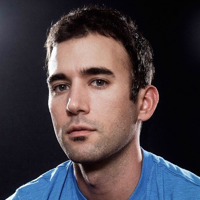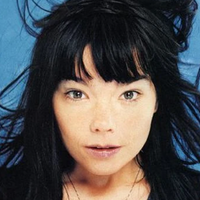Mitski Miyawaki MBTI -Persönlichkeitstyp
Persönlichkeit
"Welcher Persönlichkeitstyp ist {profilename}? {profilename} ist ein {MBTI} -Persönlichkeitstyp in MBTI, {enneagram} - {iv} - {tritype} in EnneArgram, {big5} in Big 5, {socionics} in Socionics."
I'd just like to add on that the argument for Fe on the basis that she is a people-pleaser and wants to make other people happy is... rather weak, in my opinion. Fi isn't necessarily a function that is always selfish and only focused on one's own emotions, disregarding others'. To elaborate, the whole "she wanted others' approval in high school which is Fe" reasoning fails to take into consideration the fact that Mitski's need to be accepted/loved (which, in the first place, is not necessarily Fe either) was impacted by her identity as a woman of colour dealing with cultural differences. Contextually, most people here would desire for acceptance and therefore be somewhat more people-pleasing, Fe or not. By the way, we're dealing with someone who expresses her relationship with her culture into her music in almost all her songs. 4s and Fi doms may typically be associated with a fierce sense of authenticity but in actuality there is room for identity crises and change. Fi doms are not static beings who are always going to be themselves, humans develop and grow. Besides, this could also be an argument for a 4 disintegrating to 2, which can also give off the impression of Fe given the nature of what a 2 is like. I would say that this is more plausible than Fe even, given the fact that this manifested in the typical 4 disintegration route: needing connection and love from other people and being especially sensitive to others' perceptions of you and how it aligns with your identity and the like. While Fe is also mostly seen as a function that strives to be liked by others, this isn't what it truly is at its core, and outside of this I hardly see any traces of Fe in her. Even when she analyses the feelings of others, she tends to use herself as a basis, using self-expression to reach out to others, even. I have mostly seen people say that she displays Ni due to the metaphorical nature of her lyrics and in how she planned her life out, but again, these are more so stereotypical and shallow definitions of what Ni is. Ni isn't just "the future", I don't think planning her future is a good example at all. Ni is a lot more outwardly centripetal in a sense, and gets its abstract insight from there - in Mitski's case, I would argue that it is the complete opposite. Her ideas come from her own emotions and the need to express them that comes from the sheer value she places on these personal feelings - I think faintly falling and Qerresa have shown more than enough quotes that display this, so I won't delve deeper into this because their comments are definitely detailed enough and strongly support this. Some INFJ voters are saying that the current consensus comes from the fact that she makes "sad music" and that perhaps the INFP vote is driven by stereotypical ideas. But sometimes things fit into the stereotypes that they are associated with and that's understandable because stereotypes exist for a reason. I also saw someone say that she's a very different person outside of her sad lyrics, but that isn't indicative of her not being an INFP and instead an INFJ either? If anything it sort of seems counterintuitive in its own way, but I digress... and apologies for the long thread.
Biografie
Mitski Miyawaki (born September 27, 1990), born Mitsuki Laycock and performing as Mitski, is a Japanese-American singer-songwriter. Mitski self-released her first two albums, Lush (2012), and Retired from Sad, New Career in Business (2013), while studying at Purchase College's Conservatory of Music. After graduating, she released her third studio album, Bury Me at Makeout Creek (2014), through Double Double Whammy. It was followed by Puberty 2 (2016) and Be the Cowboy (2018), released on Dead Oceans.
Persönlichkeit correlate

Alex Turner

Claire Cottrill "Clairo"

Florence Welch

Phoebe Bridgers

Sufjan Stevens

Alex G

Beatrice Laus "beabadoobee"

Elliott Smith







